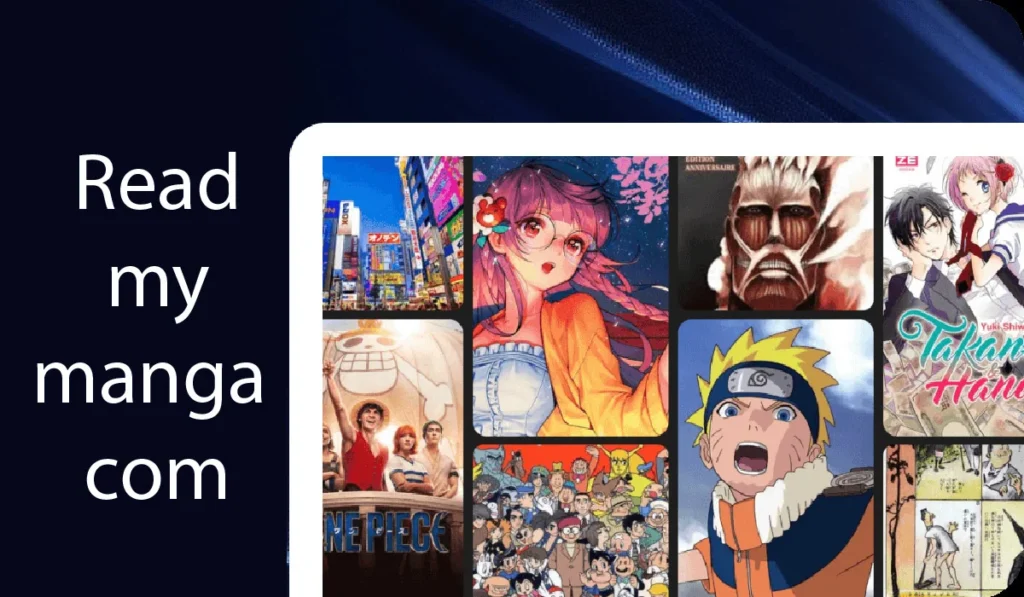In the vast world of manga, fans often seek out new stories and characters to fall in love with. One popular platform that has emerged is Readmymanga, a site where enthusiasts can find fan translations of their favorite series. But as tempting as it may be to dive into those translated chapters, questions about legality loom large. Are these translations a harmless way for fans to share their passion? Or do they tread dangerously close to copyright infringement?
As we explore the intricacies surrounding Readmymanga, we’ll uncover what makes fan translations so appealing and examine the legal ramifications involved. Whether you’re a devoted reader or just curious about how this all works, understanding the balance between creativity and copyright is essential in today’s digital age. Buckle up! It’s time to unravel this complex web of fandom and legality.
The Legalities of Fan Translations
Fan translations have become a staple in the manga community. They allow readers access to stories that might not be available in their language.
However, the legality of these translations is murky at best. Often, fan translators operate without permission from copyright holders. This puts them in a precarious position under copyright laws.
Some argue that fan translations promote interest and expand reach for original works. Others believe they infringe on creators’ rights, potentially impacting sales.
Publishers sometimes turn a blind eye to fan projects, recognizing their role in building enthusiasm around titles. Yet, this doesn’t eliminate the risk involved for those creating or distributing such content.
Navigating this space requires understanding both passion for storytelling and respect for intellectual property rights. As fans continue translating works unofficially, discussions about legality will remain vital within the community.
Copyright Laws and Manga
Copyright laws protect creators’ rights by giving them control over their work. In the manga industry, this means that original artists and writers have exclusive ownership of their characters, stories, and illustrations.
Manga copyright extends to translation efforts as well. When fan translations occur without permission from the copyright holders, they can infringe on these rights. This often leads to legal complications for both translators and platforms hosting the content.
Countries have different regulations regarding copyright duration and enforcement. Generally, works are protected for a number of years after publication or creation. These laws aim to balance protecting creators with allowing public access to creative works.
Understanding these nuances is crucial for anyone involved in sharing or consuming manga outside official channels. Fans often face ethical dilemmas when navigating this landscape while supporting their favorite series legally.
The Impact of Fan Translations on Publishers and Creators
Fan translations play a complex role in the manga ecosystem. They can introduce new readers to beloved series that might not be officially available in their language. This often sparks interest and growth within the fandom.
However, this exposure comes with significant drawbacks for publishers and creators. Unauthorized translations can lead to financial losses, as potential sales are diverted away from official releases. When fans opt for free fan-translated content over licensed works, it undermines the revenue streams crucial to supporting artists.
Moreover, these unofficial versions may lack quality control. Misinterpretations or poor translations can alter character nuances or plotlines, potentially alienating readers who seek authentic experiences.
On the other hand, some publishers recognize the value of fan communities and choose collaboration instead of confrontation. Such partnerships could pave a path toward more inclusive practices while still honoring copyright laws and creators’ rights.
Alternatives to Readmymanga
For those seeking alternatives to Readmymanga, there are several options worth exploring. Websites like MangaDex and MangaRock offer vast libraries of titles, featuring both popular series and hidden gems.
If you prefer a more curated experience, consider subscription services like Crunchyroll or Viz Media. They provide access to licensed manga with high-quality translations while supporting the creators directly.
Digital platforms such as ComiXology also feature a plethora of manga titles, often available for purchase or through their unlimited plan. This ensures you’re reading legally while enjoying diverse genres.
Additionally, local bookstores and libraries may carry manga collections. This not only supports your community but also allows you to discover new stories without relying on online sources. Each option provides unique benefits that cater to various tastes and preferences in the vibrant world of manga reading.
The Future of Fan Translations and Copyright Laws in the Manga Industry
The landscape of fan translations is evolving, influenced by shifting copyright laws and industry practices. As manga gains global popularity, the demand for accessible content grows. This presents both opportunities and challenges for fan translators.
Publishers are starting to recognize the value of these passionate communities. Instead of outright banning translations, some companies may adopt a more collaborative approach. They could offer official support or even hire talented fans as part of their teams.
Technological advancements also play a role in this evolution. With AI-powered translation tools becoming more accurate, the line between professional work and fan efforts may blur further.
As creators push for stricter enforcement against piracy, understanding what constitutes fair use will be essential. The future might see a balance where both publishers’ rights and fans’ passion coexist harmoniously in this dynamic industry.
Conclusion
Navigating the world of fan translations and online manga platforms like Readmymanga can be complex. Understanding copyright laws is crucial for both fans and creators. While many enjoy the accessibility that fan translations provide, it’s important to recognize their potential legal implications.
The relationship between publishers, creators, and fans continues to evolve. As more people discover manga through unofficial channels, the impact on original content creators becomes increasingly significant. This shifting landscape raises questions about how best to support artists while satisfying fan demand.
With a variety of alternatives available, readers have options beyond Readmymanga that respect copyright and support official releases. Whether it’s subscribing to legitimate streaming services or purchasing physical copies from authorized vendors, every choice matters in sustaining the industry.
As we look toward the future of fan translations in relation to copyright laws within the manga industry, dialogue among stakeholders will be essential for fostering a healthy ecosystem where creativity thrives alongside legal frameworks. Embracing change might lead to solutions that benefit everyone involved—fans included—as they continue their love affair with this vibrant art form.






